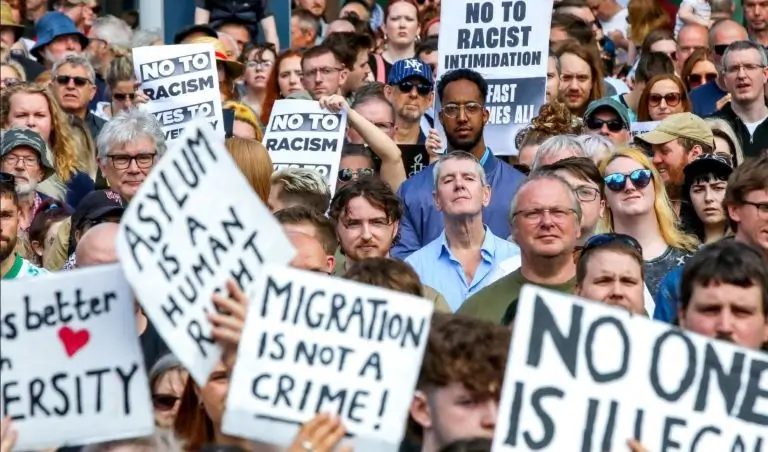As the summer of 2024 unfolds, England finds itself gripped by a wave of violent riots led by the British far-right, particularly the English Defence League (EDL). These riots, fueled by anti-immigrant and Islamophobic sentiment, have left communities shattered, lives destroyed, and a nation more divided than ever. While the violence is a tragic symptom of deeper societal issues, it’s crucial to recognize that beneath the surface, both sides of this conflict share a common struggle: the fight for survival in an increasingly challenging economic landscape.
The riots erupted following the tragic murders of three young children in the Merseyside town of Southport on July 29, which also left nine other children wounded and two adults seriously injured. A 17-year-old from Cardiff was arrested on suspicion of murder, yet despite no official confirmation linking the crime to any ethnic or religious group, far-right factions seized upon the tragedy. Through social media, they spread false propaganda, blaming Muslims and immigrants, which sparked violent unrest not only in Southport but also in Manchester, Bolton, and Liverpool. Mobs torched buildings, looted shops, and attacked police officers, leading to numerous arrests and injuries.
However, as the streets burn and tensions rise, it’s essential to ask: Who truly benefits from this chaos? The answer is sobering. Both the far-right rioters and the Muslim communities they target are overwhelmingly working-class. These are people struggling to make ends meet, to put food on the table, and to provide for their families in a country where economic inequality is widening and social safety nets are fraying.
The real enemy is not each other, but the system that has failed them both. It’s a system that has left many feeling marginalized, unheard, and desperate. Prime Minister Keir Starmer’s promise of “swift criminal sanctions” and Home Secretary Yvette Cooper’s warning of a “reckoning” may address the immediate violence, but they do little to tackle the underlying causes of this unrest. Without meaningful action to address economic inequality, the anger and resentment that fuel these riots will only continue to fester.
In the end, the tragic irony is that both sides of this conflict are more alike than they are different. Both are fighting for a better life, for dignity, and for a future free from fear. It’s time to recognize that the true battle isn’t between Muslims and the far-right, but between the working class and a system that has left them behind.
